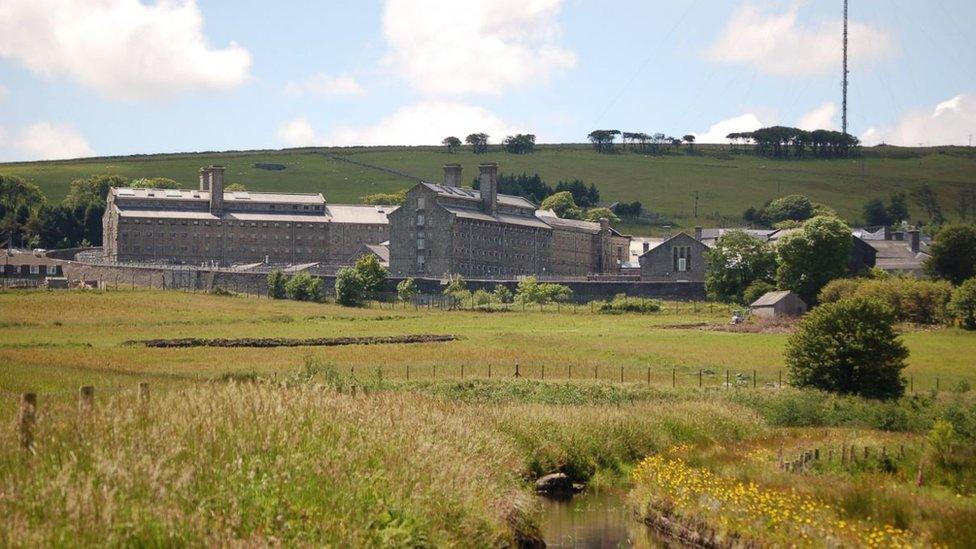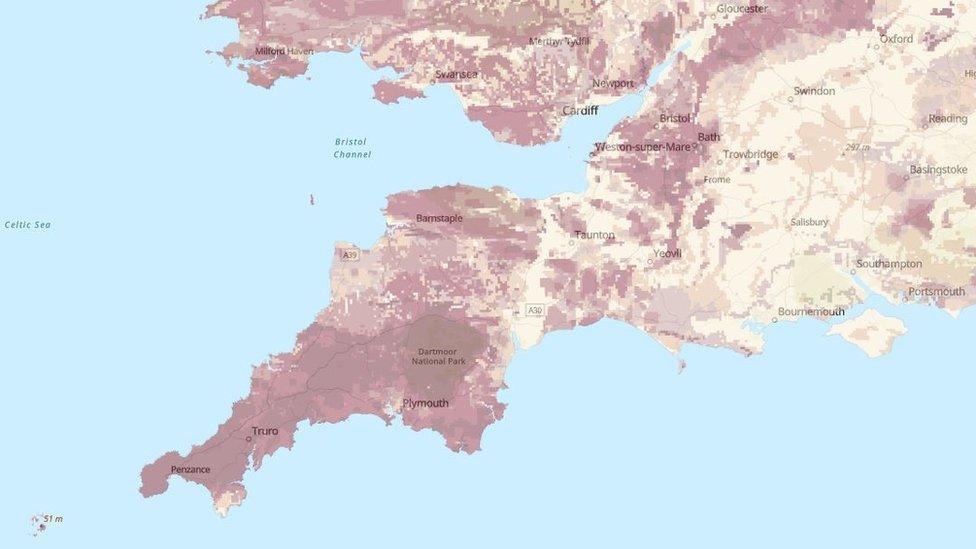Dartmoor Prison inmates moved over radon gas levels
- Published

HMP Dartmoor inmates have been temporarily moved out of the jail
A number of inmates have been moved from Dartmoor Prison in Devon after "higher-than-normal" levels of radon gas were detected.
The Prison Service said prisoners from the jail in Princetown had been relocated, but did not say how many.
Radon is a colourless and odourless radioactive gas formed by decaying uranium found in rocks and soils.
Prolonged exposure can cause illness and regular testing is conducted at buildings like Dartmoor Prison.
Radon levels may be higher in parts of the country rich in granite such as Dartmoor, according to the UK Health Security Agency, external.
The gas causes about 1,000 lung cancer deaths in the UK every year, it said.

A map showing radon levels in England. The darker the colour, the greater the chance of a higher level
Temporary measure
The BBC understands no prisoners or staff have reported becoming ill or suffering an adverse reaction to radon exposure at the jail.
A Prison Service spokesperson said: "A number of prisoners have been relocated as a precautionary measure after routine testing revealed higher-than-normal levels of radon.
"This is a temporary measure while work to permanently reduce radon levels is completed and there are no safety implications to staff or prisoners who remain on site."
Towards the end of last year, a report from the Independent Monitoring Board said the Category C prison was overcrowded, understaffed, and under-resourced.
It added the prison failed to provide a humane, fair, or safe environment for the prisoners.

Follow BBC Devon on X (formerly Twitter), external, Facebook, external and Instagram, external. Send your story ideas to spotlight@bbc.co.uk, external.